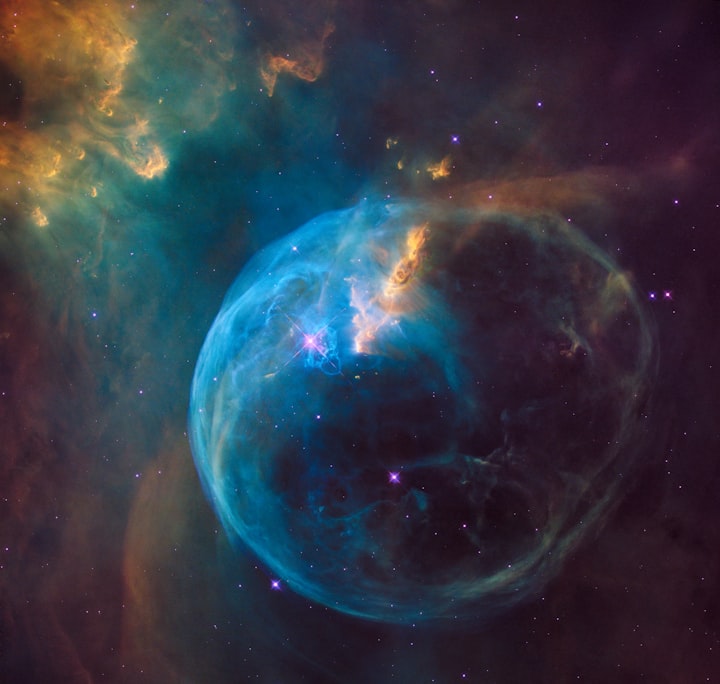Discover the Hidden Secrets of the Universe with These Mind-Blowing Theories
Unraveling the Mysteries of the Cosmos with Cutting-Edge Science
The universe is a vast and mysterious place that has fascinated humans for centuries. From ancient civilizations to modern-day scientists, people have been searching for answers to the mysteries of the universe. Over the years, many theories have been proposed to explain the secrets of the universe, and some of these theories have been mind-blowing. In this article, we will explore some of these theories and how they can help us understand the universe.
The Multiverse Theory
The Multiverse theory suggests that there are an infinite number of parallel universes, each with its own set of physical laws and dimensions. This theory is based on the idea that our universe is just one of many universes that exist. The Multiverse theory has gained popularity in recent years, as scientists continue to explore the mysteries of the universe.
The Simulation Theory
The Simulation theory suggests that our universe is nothing more than a computer simulation, created by a highly advanced civilization. This theory proposes that we are all living in a simulation, and that everything we experience is just an illusion. The Simulation theory is a controversial theory, but it has gained popularity in recent years due to advances in computer technology and artificial intelligence.
The String Theory
The String Theory proposes that the fundamental building blocks of the universe are not particles, but tiny, one-dimensional objects known as strings. These strings vibrate at different frequencies, which gives rise to different particles and forces in the universe. The String Theory has been proposed as a way to unify the laws of physics, but it remains a controversial theory.
The Dark Matter Theory
The Dark Matter theory proposes that there is a form of matter in the universe that we cannot see, but that makes up the majority of the mass of the universe. This theory was proposed to explain the discrepancy between the observed mass of the universe and the amount of visible matter. The Dark Matter theory has gained widespread acceptance among scientists, as it provides an explanation for many of the mysteries of the universe.
The Big Bang Theory
The Big Bang Theory is one of the most widely accepted theories of the universe. It proposes that the universe began as a singularity, a point of infinite density and temperature. The singularity then expanded rapidly, creating the universe as we know it today. The Big Bang Theory has been supported by a wealth of observational evidence, and is widely accepted by the scientific community.
The Black Hole Theory
The Black Hole theory proposes that there are regions in space where the gravitational pull is so strong that nothing can escape, not even light. These regions are known as black holes. The Black Hole theory has been supported by observational evidence, and has led to a better understanding of the universe.
The Theory of Relativity
The Theory of Relativity is one of the most famous and influential theories in the history of physics. It was proposed by Albert Einstein in 1915, and it revolutionized our understanding of space and time. The Theory of Relativity proposes that the laws of physics are the same for all observers, regardless of their relative motion.
The Quantum Theory
The Quantum Theory is a branch of physics that deals with the behavior of subatomic particles. It proposes that particles can exist in multiple states at the same time, and that their behavior is inherently unpredictable. The Quantum Theory has been the subject of much debate and controversy, but it has led to many important discoveries in physics and technology.
The Holographic Universe Theory
The Holographic Universe theory proposes that our universe is a three-dimensional projection of information that is stored on a two-dimensional surface. This theory has gained popularity in recent years, as scientists continue to explore the mysteries of the universe.
The Theory of Everything
The Theory of Everything is the hypothetical theory that would explain all the physical laws and properties of the universe. This theory is the holy grail of physics, and is the ultimate goal of many scientists and researchers. While no theory has yet achieved this lofty goal, string theory and other approaches are being explored in the quest for a unified theory of the universe.
The universe is a vast and complex place, filled with wonders and enigmas that have puzzled scientists for generations. From the Big Bang to the present day, the cosmos has been the subject of intense study and speculation, as scientists and researchers seek to unravel its many mysteries and secrets. By exploring some of the most mind-blowing theories and discoveries in science, we can gain a deeper understanding of the universe and our place in it.
Keywords: universe, cosmos, science, theories, mysteries, discovery
Hashtags: #universe #cosmos #science #theories #mysteries #discovery
About the Creator
Pepe Magic
Imaginative storyteller Pepe Magic blends humor & inspiration to captivate readers with thought-provoking insights. Join the journey of self-discovery & be prepared to be inspired, entertained & uplifted.







Comments
There are no comments for this story
Be the first to respond and start the conversation.